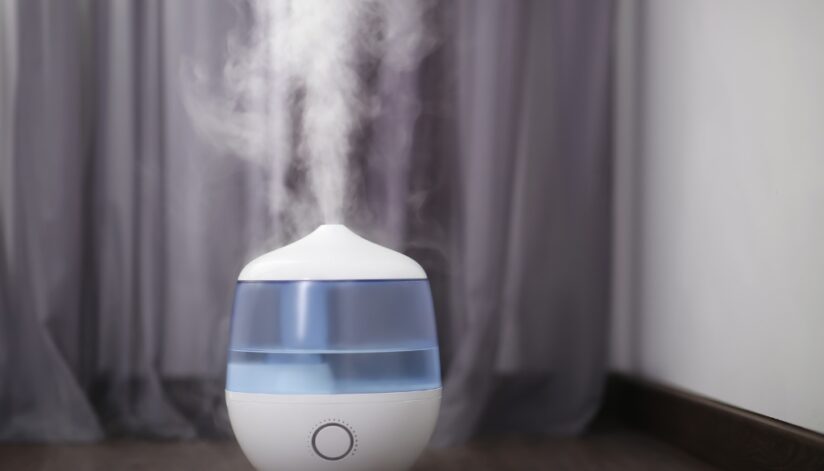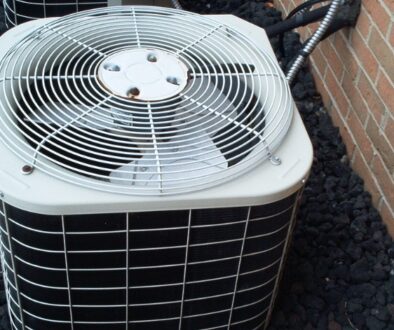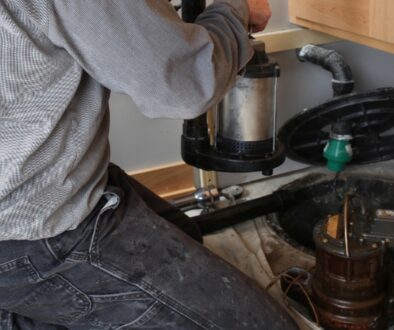Why Dry Air Makes You Feel Colder & How Humidifiers Can Help
Homeowners in the La Crosse area often find themselves cranking up the thermostat to stay warm this time of year. But what if we told you that the issue might not just be the temperature? Dry air in your home could be making you feel colder than you actually are, leading to higher energy bills and unnecessary strain on your furnace. The good news is that humidifiers can make a significant difference for dry air in your home. In this post, the heating and HVAC experts at Niebuhr will explore how humidity affects home comfort and how humidifiers, including AprilAire Whole-House Humidifiers, can keep you warm while improving energy efficiency.
The Relationship Between Dry Air And Feeling Cold
Why Dry Air Feels Colder
Humidity plays a crucial role in how warm or cold we feel. When the air inside your home is dry, it can cause several physical and environmental effects that make you feel colder:
- Increased Evaporation: Dry air pulls moisture from your skin, causing sweat to evaporate more quickly. This evaporation has a cooling effect on your body, leaving you feeling chilly even when your home’s temperature is set to a comfortable level.
- Poor Heat Retention: Moist air holds heat better than dry air. When indoor humidity levels are low, heat dissipates more quickly, making your home feel colder than the thermostat reading suggests.
- Static Electricity and Discomfort: In addition to feeling cold, dry air can cause discomfort in the form of static shocks, dry skin, and irritated nasal passages—all of which contribute to an overall sense of being uncomfortable.
The Ideal Humidity Level For Comfort
The ideal indoor humidity level during the winter months is between 30% and 50%. Maintaining this range can make your home feel warmer and more comfortable without the need to overwork your heating system. However, many homes in Wisconsin experience much lower humidity levels during the winter, often dipping below 20%.
How Humidifiers Combat Dry Air And Maintain Warmth
Humidifiers are devices designed to add moisture to the air, and they can significantly improve both your comfort and the efficiency of your heating system.
1. Improved Perception Of Warmth
By increasing the humidity level in your home, humidifiers help reduce the evaporation of moisture from your skin. This means you’ll feel warmer at a lower thermostat setting, which can lead to energy savings.
2. Reduced Strain on Your Furnace
When your home feels warmer due to proper humidity levels, you’re less likely to turn up the heat. This reduces the workload on your furnace, extending its lifespan and lowering your energy bills.
3. Health Benefits
In addition to keeping you warm, humidifiers can alleviate many of the health issues caused by dry air, such as:
- Dry skin and cracked lips
- Irritated sinuses and throat
- Increased susceptibility to colds and respiratory infections
Humidifiers also help reduce static electricity, which can be a nuisance during the winter months.
4. Protection for Your Home
Dry air doesn’t just affect people—it can also damage your home. Low humidity levels can cause wood floors, furniture, and musical instruments to crack or warp. Adding moisture to the air helps protect these investments.
Types Of Humidifiers To Consider
If you’re considering a humidifier for your home, there are several types to choose from:
- Portable Room Humidifiers: Best for single rooms but require frequent refilling.
- Whole-House Humidifiers: Installed directly into your HVAC system, these provide consistent humidity levels throughout your home. For example, AprilAire Whole-House Humidifiers offer an efficient, hands-off solution for maintaining proper indoor humidity.
- Ultrasonic Humidifiers: Quiet and energy-efficient but best for smaller spaces.
Tips For Using A Humidifier Effectively
To get the most out of your humidifier, follow these guidelines:
- Monitor Humidity Levels: Use a hygrometer to ensure your home stays within the ideal 30%-50% range. Excess humidity can lead to condensation and mold growth.
- Regular Maintenance: Clean your humidifier regularly to prevent bacteria and mold buildup, which can affect indoor air quality.
- Use Distilled Water: For portable or ultrasonic humidifiers, distilled water helps reduce mineral buildup and extends the life of the device.
- Optimize Placement: Place your humidifier in a central location or near heating vents for even moisture distribution.
Other Ways To Combat Dry Air
While humidifiers are highly effective, there are additional steps you can take to maintain proper humidity levels and combat dry air in your home:
- Seal Drafts: Gaps around windows and doors allow cold, dry air to enter. Sealing these areas can help retain heat and humidity.
- Houseplants: Plants naturally release moisture into the air, providing a small but effective boost to humidity levels.
- Dry Laundry Indoors: Hanging wet clothes to dry indoors can add moisture to the air.
Conclusion
Dry air doesn’t just make your home uncomfortable—it can also make you feel colder and lead to higher energy bills. By maintaining proper humidity levels with a humidifier, such as an AprilAire Whole-House Humidifier from Niebuhr, you can improve your comfort, protect your home, and reduce strain on your furnace during the cold Wisconsin winters.




